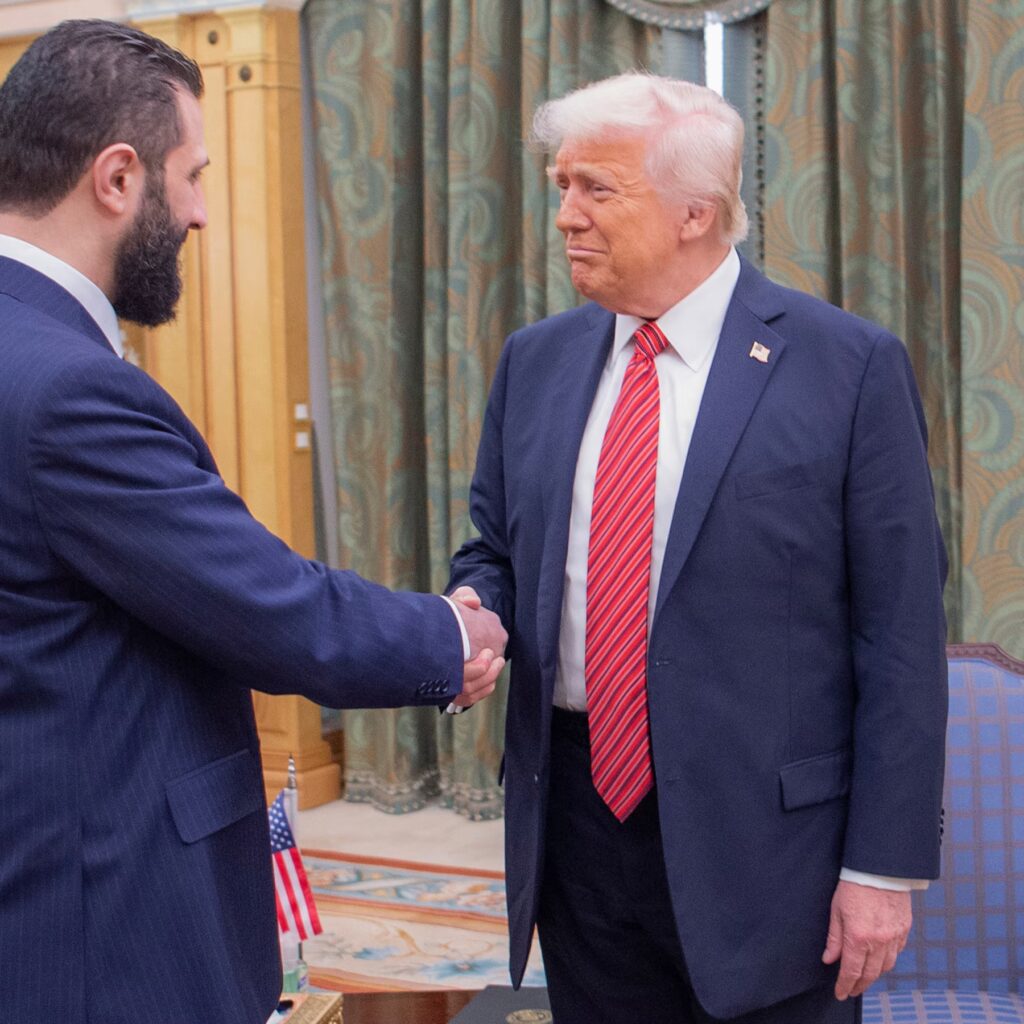Washington, June 30 – President Donald Trump signed an executive order on Monday officially ending the United States’ sanctions program on Syria. The decision marks a major policy shift and paves the way for Syria to reintegrate into the global financial system and begin rebuilding after years of civil war.
According to White House spokesperson Karoline Leavitt, while the broader sanctions program has ended, the U.S. will continue to impose penalties on former Syrian President Bashar al-Assad, his inner circle, human rights violators, drug traffickers, and those linked to terrorism, chemical weapons, or Iranian proxy groups.
Assad was removed from power in December following a rapid offensive by Islamist-led rebel forces. Since then, Syria has been taking steps to restore diplomatic relations and normalize its ties with the international community.
Syria’s current President, Ahmed al-Sharaa, and President Trump held a landmark meeting in Riyadh this May, where Trump first announced the intention to lift sanctions. Syrian Foreign Minister Asaad al-Shibani welcomed the move on social media, calling it a breakthrough for reconstruction and international cooperation.

“This decision removes a long-standing obstacle to our economic recovery,” al-Shibani said.
U.S. Special Envoy for Syria Thomas Barrack described the process of lifting sanctions as “long, complex, and extremely detailed,” and said it reflects a broader shift in U.S. foreign policy regarding Syria.
The White House confirmed that the order includes reviewing Syria’s designation as a state sponsor of terrorism and the classification of Hayat Tahrir al-Sham—a rebel group previously associated with al-Qaeda—led by President Sharaa.
Officials emphasized that the U.S. would still monitor Syria’s progress on key issues, including peace efforts with Israel, action against foreign and Palestinian terrorist groups, and broader regional stability.
Meanwhile, a Reuters investigation published on Monday exposed the Syrian military’s role in the killing of over 1,500 Alawites in coastal regions during the March massacres. The Trump administration declined to comment on the findings.
Following Trump’s announcement in May, the U.S. Treasury had already issued a general license to allow transactions with Syria’s interim government, central bank, and public enterprises. However, some restrictions remain under U.S. laws such as the Caesar Act, which will now be reviewed for possible suspension.
A senior official confirmed that the national emergency regarding Syria declared in 2004 has also been revoked, along with related executive orders. The new directive includes steps to ease export restrictions and support economic activity in Syria.
This move is seen as a significant step in re-engaging Syria with the global economy and encouraging humanitarian support and investment.






